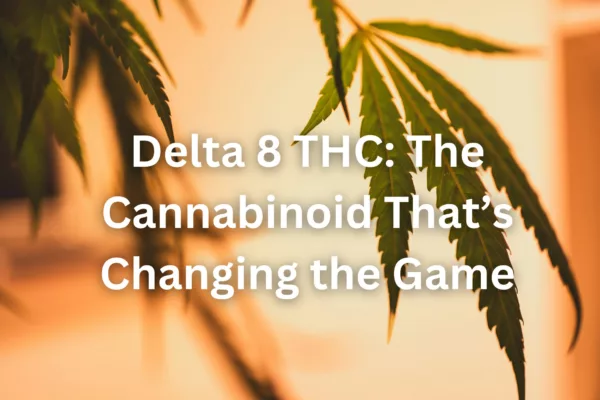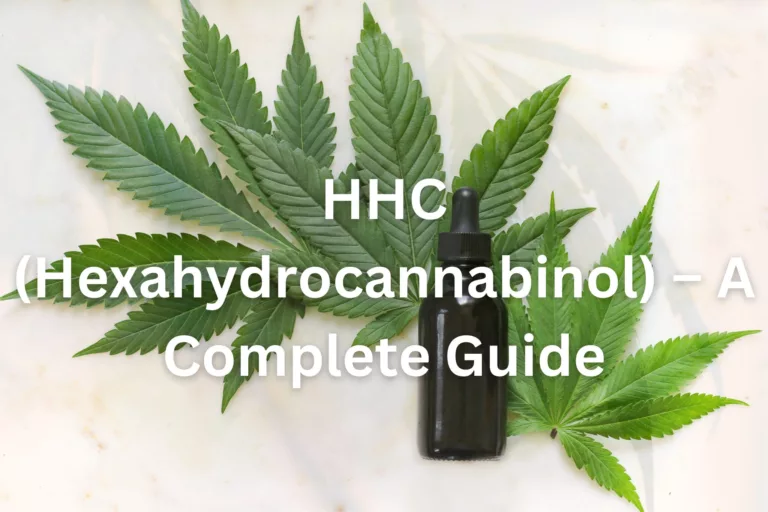
Why THCA is a Game-Changer in the Cannabis Market
You’ve heard of THC and CBD, but what about THCA? THCA diamonds and THCA distillate are popping up in products everywhere, but what’s all the hype about? If you’re curious about THCA and its potential, you’re in the right place. Let’s take a closer look at how this cannabinoid is changing the game without the smoke and mirrors.
What Is THCA?
THCA (tetrahydrocannabinolic acid) is a natural compound found in raw cannabis plants. It’s typically found in fresh cannabis in its natural state, where it’s still in its acidic form. When heat is introduced (say, through smoking, vaping, or cooking), THCA transforms into THC, which is the compound responsible for cannabis’ signature effects.
THCA distillate, THCA isolate, and even THCA diamonds are all ways to concentrate this compound, making it a valuable component in the world of cannabis products. But without heat, it stays inactive and doesn’t produce any of the effects most people associate with cannabis.
THCA vs. THC: What’s the Difference?
THCA and THC are two of the most talked-about cannabinoids, but they aren’t the same thing. Here’s a simple table that highlights the key distinctions between these two cannabinoids:
| Factor | THCA | THC |
| Psychoactive | Not psychoactive until heated | Psychoactive; responsible for the “high” |
| Presence in Cannabis | Found in raw, unheated cannabis plants | Found in heated cannabis or processed products |
| Activation | Must be heated to convert into THC (decarboxylation) | Already active in cannabis after heat or processing |
| Effect on the Body | Doesn’t produce the typical effects of cannabis | Produces psychoactive effects (commonly known as a “high”) |
| Bioavailability | Low bioavailability unless converted to THC | Higher bioavailability when consumed |
| Chemical Process | Decarboxylation (heat removes carboxyl group) | Already in active form and ready to act |
| Product Forms | Available in tinctures, concentrates, and raw cannabis | Available in vapes, oils, edibles, and concentrates |
At first glance, THCA and THC might seem pretty similar. Both are derived from cannabis, but their roles and effects are very different.
THCA is the raw form of the cannabinoid found in cannabis plants. It’s not psychoactive and doesn’t cause any noticeable effects unless it’s exposed to heat. This is when THCA undergoes decarboxylation, which turns it into THC, the active form that produces the well-known effects.
In contrast, THC is the more well-known cannabinoid responsible for cannabis’ signature effects. It’s readily active in its final form and doesn’t need to be converted through heat. This makes THC easier to consume and more predictable when it comes to its impact on the body.
The Potential of THCA Distillate and Isolate
Both THCA distillate and THCA isolate offer powerful, purified options for those looking to experience THCA in a concentrated form. While THCA distillate is a liquid concentrate great for infusions, THCA isolate provides a nearly pure form of THCA perfect for precise dosing and product formulations.
What Is THCA Distillate?
THCA distillate is a highly refined concentrate of THCA. It’s extracted using a process that removes impurities, leaving behind pure THCA in a liquid form. This concentrate can be used in a variety of cannabis products, from tinctures to edibles, and offers a potent option for those looking for a high-quality, purified form of THCA.
Because it’s highly concentrated, THCA distillate is often used in smaller doses but still packs a powerful punch in terms of its potential effects.
What Is THCA Isolate?

Think of THCA isolate as the purest form of THCA. It’s the isolated compound, free of other cannabinoids, terpenes, and any plant matter. It’s created by further refining THCA distillate, which means it’s almost 100% pure THCA. This form of THCA is often used in products that require a high level of precision in dosing, like capsules or pre-measured extracts.
Since THCA isolate is so pure, it’s often the go-to choice when you want a concentrated form of THCA without other compounds getting in the way.
How Does THCA Isolate Powder Fit In?
THCA isolate powder is the powdered version of THCA isolate. This powder is fine, almost crystalline, and can be easily incorporated into a variety of cannabis products. Its high purity makes it ideal for infusions in oils or tinctures, and it can even be added to edibles or topical products.
Can You Smoke THCA Isolate Powder?
Technically, yes, you can smoke THCA isolate powder, but keep in mind that THCA needs to be heated to convert into THC through decarboxylation. When you smoke THCA isolate powder, heat activates the THCA, turning it into THC.
However, THCA isolate powder isn’t typically used as a smoking material on its own; it’s more commonly found in concentrates, tinctures, or other products designed for a more controlled consumption experience.
What Are THCA Diamonds?

THCA diamonds are made through a careful extraction and crystallization process that isolates THCA from raw cannabis.
First, the cannabis undergoes an extraction process, typically using solvents, to concentrate the THCA. Then, the extract is purified, and the THCA begins to form large, crystalline structures, hence the term “diamonds.”
With their high concentration of THCA, these diamonds offer a clean, intense experience for those seeking a concentrated form of cannabis. Because they contain little to no impurities, THCA diamonds stand out as one of the cleanest, most potent forms of cannabis concentrate available.
How Does THCA Affect the Body?
THCA might not be as well-known as THC, but it’s making a name for itself in the cannabis market. Many users are exploring THCA products for their reported effects. Here’s what users have experienced:
- Non-Psychoactive in Raw Form: THCA does not significantly bind to CB1 receptors. This explains why raw THCA doesn’t produce the effects typical of THC.
- Enzyme and Receptor Activity: Early studies indicate that THCA may interact with certain enzymes and receptors, such as COX enzymes and TRP channels. These interactions are mostly observed in controlled lab settings and are still under investigation.
- Limited In Vivo Effects: The bulk of current research is preclinical, focusing on in vitro or animal models. This means we have limited data on how THCA affects the human body in everyday use.
- Anti-Inflammatory Properties: THCA has been found to inhibit enzymes such as COX-1 and COX-2, which are involved in inflammatory processes. This suggests that THCA may have anti-inflammatory effects.
- Interaction with TRP Channels: THCA acts as an agonist for transient receptor potential (TRP) channels such as TRPA1 and TRPV2, which are involved in various physiological processes.
Pros and Cons of THCA
To help you decide if THCA distillate, THCA isolate, or even flashy THCA diamonds are worth your time, here’s a straightforward look at the pros and cons.
| Pros of THCA | Cons of THCA |
| Non-psychoactive until heated | Must be heated to convert into THC for effects |
| High purity and potency (THCA isolate powder) | Hard to find in certain areas |
| Clear-headed experience (according to users) | Needs specialized knowledge for proper use |
| Versatile. Easy to use in many product forms | Higher price point compared to standard cannabis products |
| Potential uses in wellness routines | Limited research available compared to THC or CBD |
If you’re after a clear-headed experience, products like THCA isolate and THCA distillate can be a great pick. Keep in mind that availability can be tricky. Not every cannabis store stocks these concentrates, and they can cost a bit more. Plus, because THCA is relatively new, research on it isn’t as extensive yet.
Different Ways to Consume THCA
So, now that we’ve answered your burning question, “what is THCA?” let’s talk about how you can actually enjoy it.
Raw Cannabis
Raw cannabis has THCA in its natural form. This means zero psychoactive effects. It’s cannabis at its most basic and pure, perfect if you’re looking to avoid the typical cannabis effects.
Tinctures
Tinctures are super easy and user-friendly. They come as liquids, letting you measure out exactly how much THCA you want. Plus, they’re discreet, making them a convenient pick.
Concentrates
When you think concentrates, think high purity. Products like THCA distillate, THCA isolate, and THCA diamonds are concentrated forms of THCA. They’re popular because they’re potent, versatile, and offer a lot of flexibility in how you can enjoy them.
Edibles
Who doesn’t love a snack? Edibles can be infused with THCA distillate or THCA isolate powder. It’s a tasty and discreet way to enjoy THCA without any complicated prep.
Capsules
Capsules are simple and discreet. They use precise amounts of THCA isolate or distillate, offering an easy way to manage exactly how much THCA you take.
Topicals
Topicals like lotions and balms can contain THCA extracts. They’re used externally and won’t give you a psychoactive effect.
Infused Oils
Infused oils use THCA distillate to provide a precise and versatile form of THCA. These oils can be mixed easily into your favorite recipes or products.
THCA in Wellness Routines
Wondering how to add THCA to your daily life without making things complicated? Here are some simple, no-fuss ideas:
- Morning Drops: Keep a tincture made from THCA distillate handy for easy measuring and a quick start to your day.
- Smoothie Boost: Sprinkle some THCA isolate powder into your morning smoothie. You get your daily dose without even noticing.
- Capsule Convenience: Choose capsules filled with THCA isolate for an easy, accurate, and mess-free way to stay consistent.
- Evening Chill (Minus the Heat): Enjoy raw forms of THCA diamonds for a simple, relaxing ritual. Remember, no heat means no psychoactive effects.
Conclusion
You’ve made it this far, so it’s clear you’re curious about what is THCA and why it matters. Here’s the quick recap: THCA is cannabis in its pure, raw form. No psychoactive effects until it’s heated.
Ready to experience it yourself? Check out our high-quality collection of THCA isolate, distillates, and diamonds at CannaClear!




